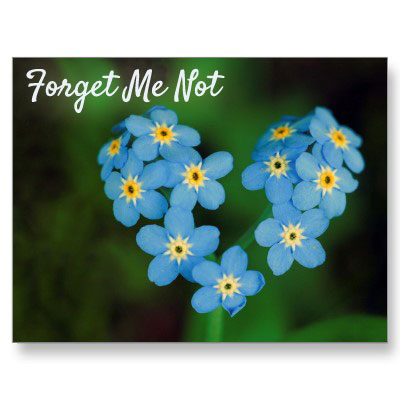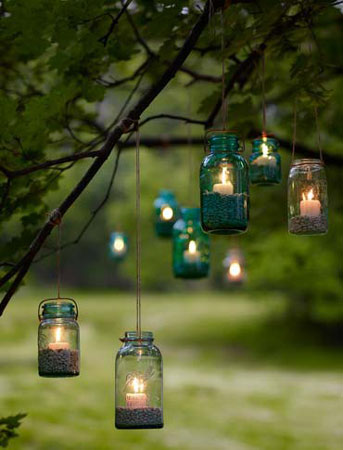
Psychologists and grief counselors alike say it’s essential to your mental health to acknowledge and remember the anniversary of a loved one’s death. In this article we take a brief look at “death anniversaries”, examine the reasons why they’re important to the living, and share a few ideas on ways you can celebrate the anniversary of a death.
A Look Back at Victorian Death and Mourning Culture
The ritualized acknowledgement of a death anniversary all began with the Victorians. It was a time when mourning was refined to an art, due in part to the extreme bereavement of Queen Victoria after the death of her husband, Prince Albert in 1861. Also, because of high mortality rates in Victorian England, she said, death and mourning became a way of life for survivors. For many, especially for the upper class Victorians, the cemetery was a focal point of activities related to mourning.
Pat Jalland in her 1996 book, Death in the Victorian Family, wrote, “Keeping the anniversary of a loved one’s death with a visit to the grave was a common form of remembrance for the Victorians. Because of the memorial significance of the grave, families were very involved in maintaining the plot as a pleasant place of remembrance, planting shrubs, renewing flowers, and keeping it tidy.”
As a rule, we don’t share the Victorian’s focus on the cemetery as a place of active mourning; for whatever reasons (financial, psychological or spiritual) fewer people choose a traditional cemetery burial. Today, more families choose direct cremation and find themselves caretaking a loved one’s cremated remains until “the time is right” for memorialization.
And when is the time right? It’s dependent on who and where you are, and what’s important to you. While some families consider a loved one’s birthday to be especially meaningful; certainly, you’d agree the anniversary of a loved one’s death is a especially fine day for commemoration.
The Meaning of Death Anniversaries & The Importance of Acknowledging Them
Taking the time to honor and remember a loved one’s death anniversary is about reconnecting and reaffirming our on-going relationship with the deceased. Another part of acknowledging the anniversary of a death involves psychologically “reframing” the day; taking it from a day of
extreme, often unrelievable, sadness to one where we’re eased into a mindset of acceptance and–in time–gratitude.
Katelyn Mullen wrote of the psychological, social, and spiritual need to commemorate the anniversary of a loved one’s death in the 2013 Huffington Post blog contribution, “Why It’s Necessary to Embrace a Death Day“; “It arrives every year, like clockwork. It’s the type of day you know all of the people that care about you remember, but you also hope they will forget. There is the idea of going about your business like it’s any old day of the year, but that is utterly impossible.”
Overcoming the Anniversary Effect
Not only are we deluding ourselves that we can “go about our business” that day; there are also sound medical and psychological reasons to celebrate the anniversary of a loved one’s death in a meaningful way. In Huffington Post’s blog entry “Mastering the Anniversary Reaction: Putting Memory to Rest“, Drs. Matthew Erlich and Lloyd Sederer describe the phenomenon of anniversary reaction as triggers for powerful emotional and physical reactions They go on to warn readers this reaction can “strike without warning, making its effects all the more disturbing.”
Fortunately, the doctors go on to tell readers there are things you can do to begin mastering this reaction: you can actively anticipate the event, create a meaningful ritual to engage in, hopefully with with other people: “our families and friends are often the best medicine”,
they write. It makes sense then, on a loved one’s death anniversary, to combine all three strategies by planning a special event to mark this life-changing day.
13 Inspiring Ideas to Commemorate a Death Anniversary
I spoke with a gentleman the other day who has been safekeeping his daughter’s cremated remains at home for the past six years. Anna had loved to travel “always came home with great stories” from her visits to places like Morocco, China, and Indonesia. “Sadly, she came back from a trip in 2010 not feeling very well and she died just eight months later, in 2011, of Hodgkin’s lymphoma”. Anna was he and his wife’s only child; and on the day of her death was just 28 years old.
“We didn’t really know what to do with her ashes until just a few days ago,” he confided. “I guess maybe we weren’t ready to let go of them. But now we feel we can, at least a little bit at a time.” Next month, on Anna’s death anniversary, they are taking a portion of Anna’s ashes to one of her favorite places (within a day’s drive of their home).
“We’ve gotten permission from Anna’s closest friend, who owns property there now, to co-mingle her ashes with the dirt on the hilltop where they would often watch the sunset together.” This will be the first of many such trips for the couple. They intend this event to be the first in a series of honoring events: “We’re already planning next year’s celebratory acknowledgement of Anna’s death anniversary: a trip to Indonesia!”
Don’t worry; you certainly don’t have to acknowledge the anniversary of a loved one’s death in such a “big” way. Any one of the following ideas–some small, some more ambitious–may inspire you:
Create a small shrine to your loved one in a quiet space in your home.
Decorate it with pictures and meaningful objects. Light a votive candle (in a glass holder for safety) on your loved one’s death anniversary (or other special day) and keep it burning for those 24 hours. This day-long day of candlelight is reminiscent of the Jewish tradition of Yahrzeit, where mourners light a candle that burns for 24 hours.

Revisit a local “special place” alone or with others.
It could be almost anywhere: a restaurant, beach, park, you name it. We’ve heard of one woman who, on the anniversary of her husband’s death, always visits the main library branch where she reads a story (or two) to a group of children gathered for ‘story hour’. It was something her husband loved to do once he was retired and, in taking on the role, she “feels so very close to him”.

Take the day to listen to your loved one’s favorite music, watch his or her favorite movies, and enjoy his or her favorite foods.
This can be a fine alternative when the weather makes it hard to leave the house.
Set out to deliberately share memories of your loved one with others.
Call or visit a family member or friend. Bring along photo albums to stir up, and enrich, your recollections. (This activity could easily be combined with the previous idea.)

Make a memorial donation on the date of your loved one’s death anniversary.
Think about those charities he or she was most supportive of; one woman makes an annual donation to Ducks Unlimited on the date of her father’s death. “All his life, dad loved to go duck hunting and he was a lifetime supporter of this organization. I’m just carrying on the tradition.”

If you enjoy gardening (or your loved one did)–and you have access to a dedicated place– consider starting a memorial garden on the anniversary of a death.
Plant his or her favorite flowers or shrubs and decorate it with a hand-crafted garden stepping stone, or one of the memorial stones in our collection.
Return to the scene of their death.
If your loved one’s death was caused by an accident out-of-doors, it may prove cathartic to return to the scene–if it is safe to do so–on the death anniversary to place flowers on the site.

Plan a get-together, meal, etc. with family and friends.
If the anniversary of a loved one’s death falls on a “good” day of the week for a get-together, plan a breakfast, brunch or dinner for family and friends. You might even want follow the tradition of the “empty chair”, by setting a place at the table for your deceased family member.
Work towards a cause your loved one cared about.
On your loved one’s death anniversary, make a commitment to work towards a cause your loved one was involved with–and follow through. Make the necessary phone call to get things started.
Tell your loved one’s story to a stranger
Tell your loved one’s story to a stranger. This happens quite often here at Urn Garden; one of us will have the honor to answer the phone at the right time and on the right day. (Recently we shared one such incident in Heart-Shaped Urns: A Love Story.)
Take a bouquet of flowers to their burial site.
If there’s a physical grave or mausoleum niche (and the cemetery is close enough for you to visit) take a bouquet of flowers. If distance is a problem, check with the cemetery in question to see if they (or a local florist or grave tending service) can be your proxy in this act of remembrance.
Finish a project your loved one was working on
Finish a project your loved one was working on. A long-time friend recently finished the quilt her mother was working on at the time of her death. It now covers the bed in the guest room where her mother stayed when visiting.

Post a tribute on social media
If you are a regular user of Facebook, Twitter, or another social sharing site, consider writing a tribute post to your loved one and publishing it on their death anniversary.
However you choose to acknowledge the anniversary of your loved one’s death, please remember you’re doing not only in his or her honor. You’re also commemorating the event because it’s an opportunity to reconnect and reaffirm your life-long relationship with this person. It’s a time when you not only give voice to your grief and sense of loss while–at the very same time–learning to integrate his or her absence into your day-to-day life.
